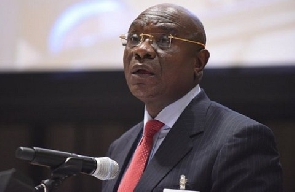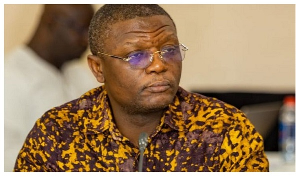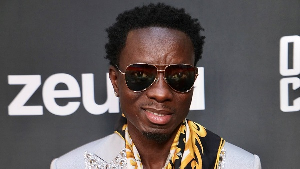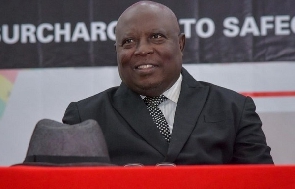After his UN session, the President of Ghana, Mr. John Dlamani Mahama, decided to interact with his countrymen resident in the United States. Numbers matter, so the president considered Worcester, Massachusetts, for his destination this time. Among other things, Worcester is favourable to Ghanaian hospitality. A cultural city of Worcester is very accommodating to families, a characteristic, very acculturalized with the "Ghanaian". Worcester ranks second after New York City as a single city with heavy Ghanaian concentration.
Historically, settlers in Worcester, predominantly Europeans of English descent, began in 1673, primarily, to seek sanctuary in the seven hilly Quinsigamond enclave from sibling squabbles in Boston, some 61 kilometers west of the city. After several deadly onslaught ranging from the indigenous Indian tribesmen through British colonialism to civil wars that got the city several times burnt down, the incorporated Worcester got chartered into a city status in 1848.
The humbled city in ashes began developing, attracting immigrants from Ireland, France, Italy, Switzerland, and many other European countries, who capitalized on the city's business investments. The population census began recording in 1790 with 2,095 residents, and grew steadily to 203,486 in 1950. However, the subsequent decade exercises recorded down hill until 1990 when the population started picking up again at almost 170,000. The latest population of Worcester City in the 2010 census shows a remarkable gain at 181,045.
The official government report on Ghanaians alone, resident in Worcester City, is in the vicinity of 25,000. Plus the undocumented, the strong presence of Ghanaians in Worcester City could be a modest 56,000. In my recent meeting with Governor Deval Patrick of Massachusetts, in a campaign for his second term in 2010, it was noted that Africans, other than African Americans, in the state totaled 78,000 with Ghanaians topping that section of the state's demography.
It can be asserted, authoritatively, that the steady growth of Worcester City population is partly caused by the strong presence of Ghanaians. The trek of Ghanaians into Worcester county dates some forty years ago when the early visitors took jobs in shoe factories, computer chips factories like Intel, military equipment manufacturing companies, adhesive manufacturers such as 3M, and so forth. During president Clinton's tenure green card lottery became popular and helped to increase Ghanaian population in Worcester. In every ten black folks in Worcester Main Street, 7 of them would be of Ghanaian origin.
The influx of Ghanaians into Worcester precipitated with the mass exit by the white population, partly due to president Clinton's initiatives of the North American Free Trade Agreement (NAFTA), that caused flight of white-collar businesses to operate offshore. So while our white folks were busily rushing out, black folks of Ghanaian descent were rushing in to fill their spots. Offshoring redefined work ethics. Chronic factory unemployed Ghanaians drifted into the readily available human and social services and healthcare delivery services.
Today Ghanaians outnumber all other cultures in these two sectors of employment especially in the lower ranks of the workforce, such as homecare live-inn, group homes, hospital housekeeping, and much senior levels like registered nurses. Ghanaians are decently represented in the community with decent single family homes and expensive automobiles of any class. Ghanaian churches flourish in the city, with over 35 denominations and still counting. Our Ghanaian traditional rulers are also fully represented. The Ghanaian humility, God-fearing, law-abiding, and hospitality are the readily characterization that other cultures bestow on Ghanaians resident in Worcester.
Worcester is centrally located in the New England (North Eastern corridor) of the United States of America and almost equidistant to all the major cities surrounding it: Boston-MA, Hartford-CT, Providence-RI, Nashua-NH, Burlington-VT, and Albany-NY. Worcester is powerfully developed with first-class educational system and boasts in vicinity of giant schools such as Clark, Harvard, MIT, WPI, BU, BC, Northeastern, Tufts, Brandeis, and closer to Brown and Yale.
A lot of research and inventions have been initiated, designed and manufactured, such as the microwave invented by WPI, Bose music system, a joint MIT-WPI initiative, intrauterine contraceptive female tube by Clark. The first human surgery was performed in Worcester at UMASS Memorial hospital, and many more. For example Worcester Polytechnic Institute (WPI) is a world-class university with strength in laser and remote sensing that has contributed to drones, the United States' latest warplanes to search and destroy the enemy targets.
Although Ghanaians have made good name in the city and bad behaviours are not tagged to them, the missing link is that our folks are not taking the brilliant opportunities available to them such as education. The huge presence of our folks should be translating to domination in the classrooms, courthouses, and even state senatorial and representation at the city, local and state administrations, but that is, unfortunately, not the case for the last 40 something years of residence in Worcester. We need more young Ghanaians of higher ambitions to take Worcester as their home because opportunities abound.
Worcester City has special relationship with Ghana. Our late president Mills lived and worked in Worcester, and got rewarded by the city. It was therefore mind boggling as to why a sitting president of the Republic of Ghana (Kwame Nkrumah's Ghana, for that matter, with all the high-end recognition) visiting a peaceful city with peaceful citizenry with open arms to receive him could decide to sneak into a colourfully beautified hall through the backdoor and exited again through the backdoor. Could someone, a close confidant, tell the president to cease that behaviour?
I organized the demonstration against his visit. It was professionally organized and remained peaceful. It was not necessary to run in and out through the backdoor. This was not the first time the president had done that. It had happened in Atlanta, Georgia and Washington, DC before. All the same, the function proceeded peacefully but hurried through his presentation and the question and answer slots. The president touched many areas, although further elucidation needed be. Two issues were of paramount to me that I had wanted to ask questions on but the NDC interguments openly denied Konongo Fordjour the right to ask questions, yet, the occasion was pre-dubbed as nonpartisan. My two questions bordered on one, the econmy and youth employment; and two, ROPAL.
Foremost, the president, like all his predecessors, is very eloquent and brilliant in identifying problems in the nation but implementational strategies have almost always eluded them. I sat listening to him analyzing president Nkrumah's state-own projects that are nonexistent now. He also touched on youth entrepreneurship. Interestingly, the president's solution to his identified economic malaise in the country were born out of value-added incentives, which are high cost in overheads and do not solve the problems.
President Mahama is the face of theoretical presidential analysts with zero strategic thinking. Pick up the map of Ghana and draw a reflective horizontal line across and that line will cut Bole-Bamboi measuring the North from the South. The northern territories present agrarian farmlands that should begin commercial agriculture. His intuition in entrepreneurship can start from that level of agricultural entrepreneurship. This is the beginning of African wealth. The pursuit of Nkrumah's state farms in today's thinking must factor into commercial agricultural entrepreneurship. This should be the direction of strategic thinking not theories we have heard million times before.
Should the president feel deflated and needs more gas to propel the economic engines of Ghana, there is a huge stock of professionals lying waste in the United States who can offer help to turn the economy around in a twinkle of an eye. The promises are too many! The paths to economic recovery have been illusory! Resuscitation of the economy is not IMF and World Bank loans. Rather, internally-generated funds can easily develop Ghana on pilot project basis through agricultural entrepreneurship. Think seriously about this, sir!
Finally, on ROPAL! I like the president's exclamation: "Tell EC to Implement ROPAL!" Should the president spearhead an agenda to see ROPAL implemented during his tenure in office, I promise him that heavenly blessings would be breathed into his defective and moribund political administration susceptible of crippling paralysis. The president is the first person in the country with mandate to right wrongs. Having identified injustice deliberately been perpetrated on fellow countrymen, who have been denied their basic human right in voting, it would be his primary responsibility to see to it that every Ghanaian anywhere must vote.
I am one of the originators of ROPAL and OMOV and have campaigned extensively through my Movement For Universal Voting. Universal voting for Ghanaians everywhere has been painfully politicized. NPP felt confused sooner they helped enact the representation of people's amendment act (ROPAA) into law (ROPAL). President Kufuor declared during his German visit that ROPAL cannot be implemented in 2007 for the 2008 general elections because of logistics. This statement was reiterated by Nana Akufo Addo in Kumasi. Subsequent statements by NPP MPs and other party leaders have not been helpful.
ROPAL implementation shouldn't take ten years to do if the president takes conscious appreciation to right the wrongs on his own fellow citizens. Mr. President, between 2006 and now (2014), the period that the Ghanaian leadership has denied Ghanaians from voting, there have been about 30 countries that have capitalized on Ghana's own citizenry original intelligentsia. Such countries include fellow African countries like Senegal, Ivory Coast, Nigeria, latest South Africa, and many more.
Holding the earlier reason given constant that, logistical expenditure draws the nation behind in its extended electoral services delivery, would there be any problem on the hindsight if the full projected expense is levied on the Ghanaian resident abroad?
Mr. President, create a legacy, embolden your name in the statutes! Implement ROPAL, Implement OMOV!
And Have a Good Day, Sir!
Konongo Fordjour
Boston, MA
koafordjour@yahoo.com
Movement For Universal Voting
Opinions of Monday, 6 October 2014
Columnist: Fordjour, Konongo



















